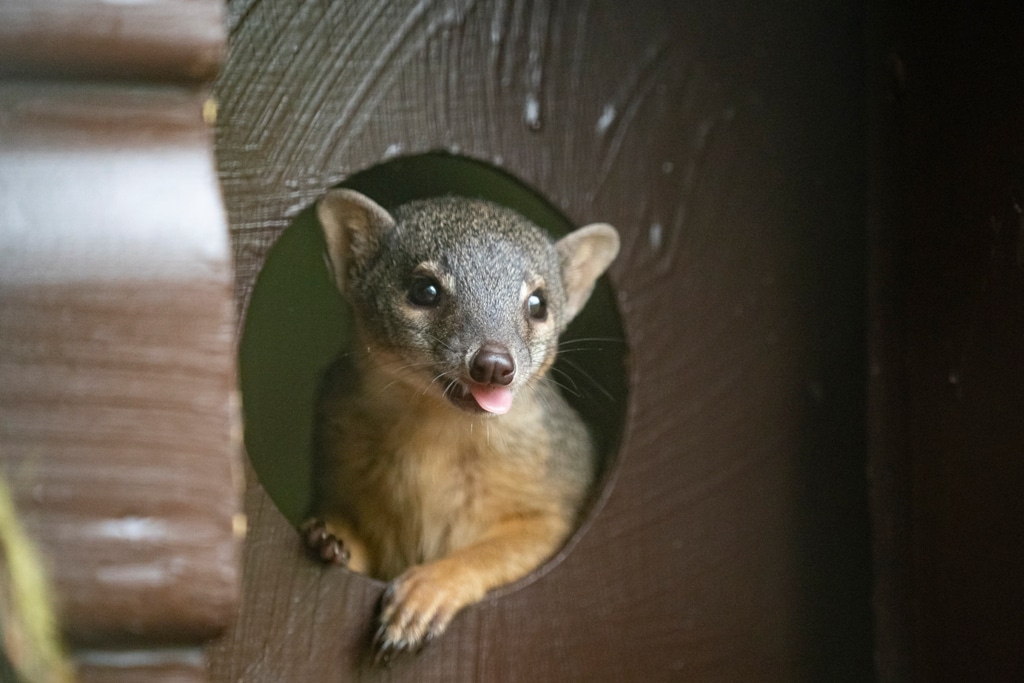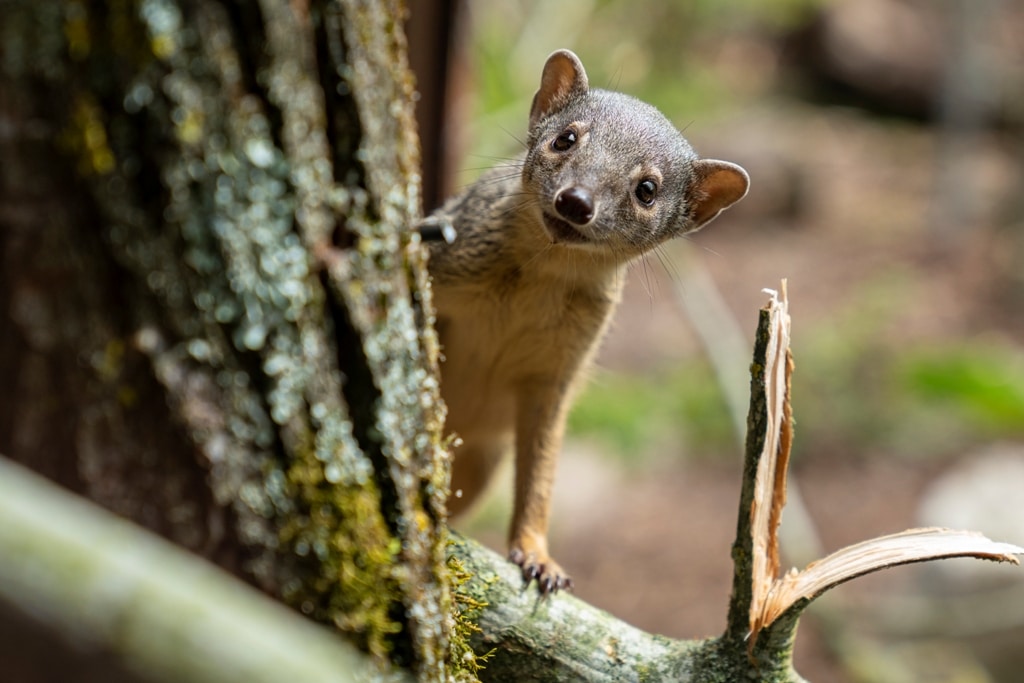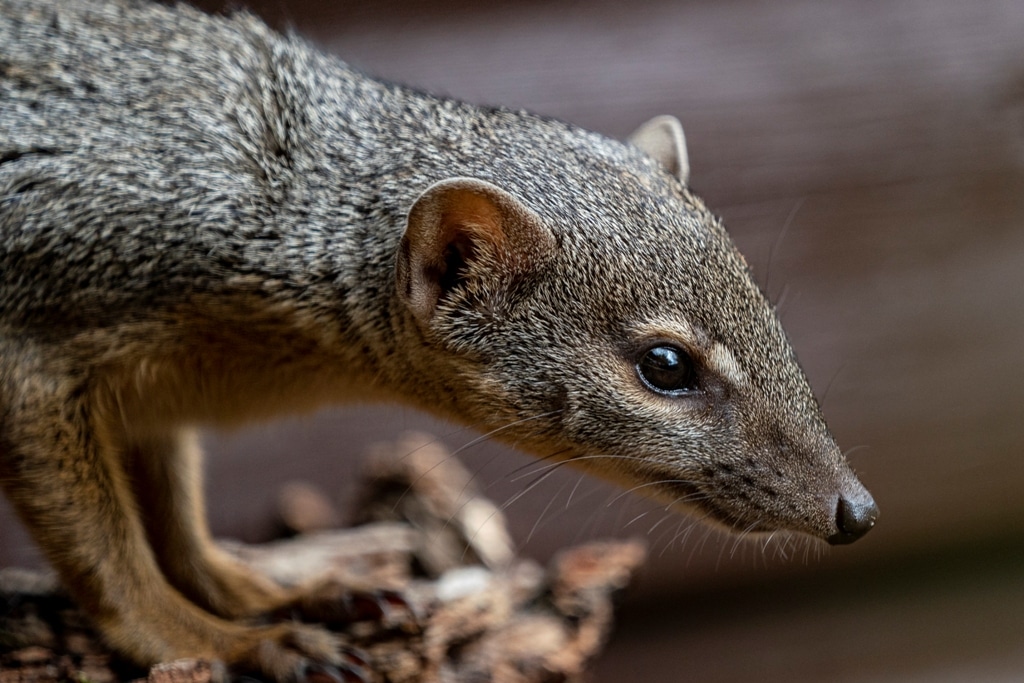Bokiboky
Common Name: Bokiboky
Scientific Name: Mungotictis decemlineata
Bokiboky use a variety of different shelters at night, depending on the time of year. In the cold, dry season they use old ant burrows, at the beginning of the warm, rainy season they use hollows in fallen dead trees, and during the warm, rainy season they use holes in standing dead or living trees.
Although bokiboky spend most of their time on the ground, they are good climbers and able to climb up and down trees.
Bokiboky usually live in family groups of six to eight which are led by a dominant female.
Fast Facts
-
Status
Endangered
-
Size
Head to body: 26 – 29 cm; tail: 19 – 21 cm
-
Weight
Males: 475-625 g; females: 450-740 g
-
Gestation
74-106 days
-
Young
1
In the wild
Bokiboky mainly eat insects, particularly insect larvae. They will also eat a range of other animals including reptiles, birds, small mammals such as tenrecs, rodents and lemurs. Bokiboky forage for invertebrates on the ground, digging for them in sandy soil and rotting wood. They have been observed working as a group to hunt prey such as mouse lemurs.
This species is only found in dry deciduous forests in western Madagascar, often in areas where there are many baobab trees. Bokiboky are usually more common in areas of native forest and tend not to be found in forests which have been disturbed by people.
Newborn bokiboky are very precocious. Their eyes and ears are open at birth, and they are able to walk within a day. The young will nurse for about two months but start to eat solid food within fifteen days. By 45 days of age infants are good at climbing, and they will hunt for their own food by the time they are about three months old. Bokiboky mothers put their young in a creche site with other young soon after they are born. This site will have an opening which is too small for the adults to fit through. The young leave the creche when their mothers call them to feed and in the late afternoon the mothers collect their young and take them to a shelter for the night.
Bokiboky are known to be preyed upon by the fossa.
Bokiboky are threatened by habitat loss and degradation, hunting, and predation by feral dogs. This species is found in several protected areas.


